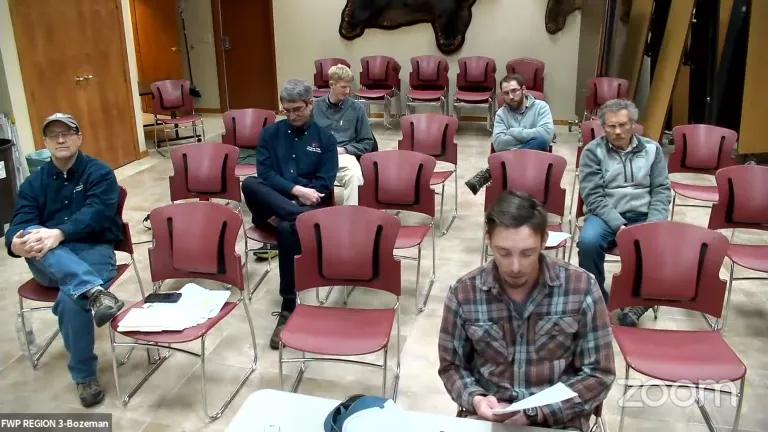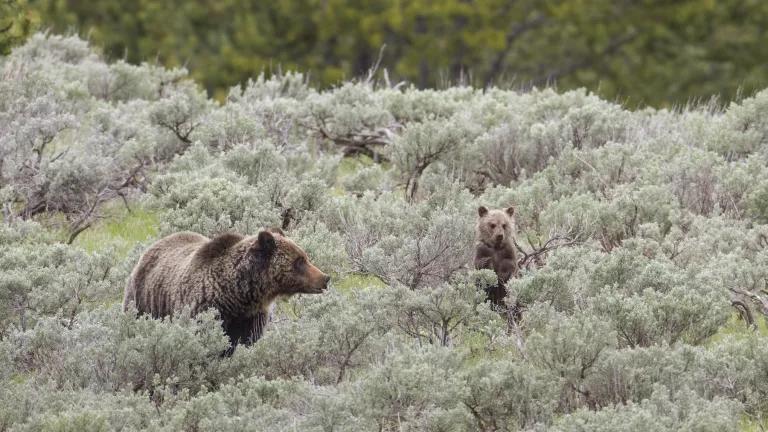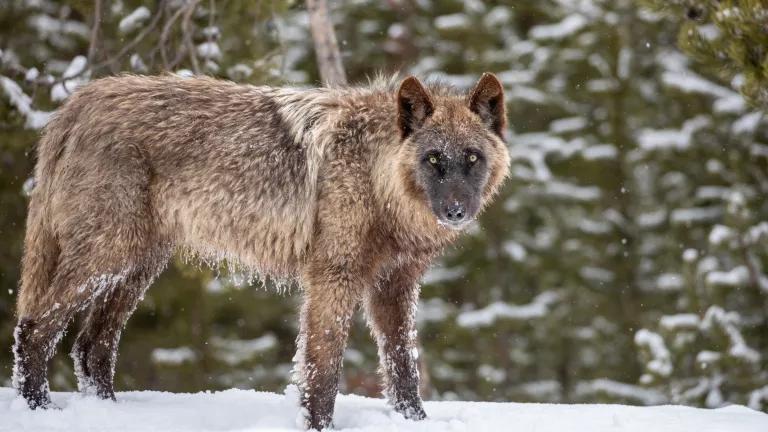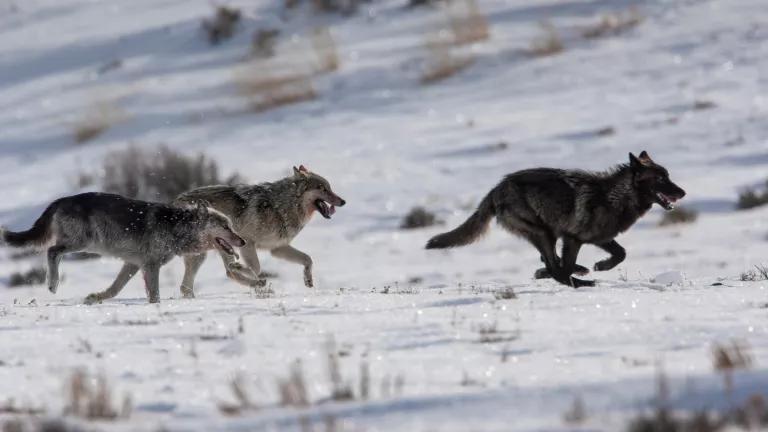
Lone black wolf in Yellowstone National Park near the popular Artists' Paint Pots natural feature.
Guest blog written by David Todd
The opportunity for public comment on government policy helps ensure that agency decision-making is more transparent and democratic. Public comments serve many purposes, including influencing or questioning proposed policies and regulations, fact checking policy proposals, highlighting unintended or overlooked outcomes, and empowering citizens to provide direct input to decision-makers. Testimonies that capture real life impacts on communities, ecosystems, livelihoods and ways of life can influence policy. I experienced this first-hand during my ten-week internship with NRDC’s Wildlife Team in the Northern Rockies.
On February 13, 2020, Montana’s Fish and Wildlife Commission—a board that sets fish and wildlife regulations—held a public meeting wherein citizens were able to testify on proposed changes to hunting regulations, including those governing the hunting and trapping of wolves. Previously, in December 2019, Montana’s Department of Fish, Wildlife & Parks (FWP) had proposed a reduction in the wolf hunting quotas in wolf management units bordering Yellowstone National Park (units 313 and 316). However, shortly before this public meeting, the agency reversed course and proposed to maintain the wolf hunting quotas in these districts. It also proposed to increase the number of wolves each person would be allowed to kill and to expand season dates in the northwestern part of the state. Ultimately, the new proposal would have allowed for increased opportunities for hunters and trappers to kill more wolves. More than one thousand people exercised their right to publicly comment on this rule—some in support, but most in opposition to the expansion of wolf hunting. NRDC was one of the groups that spoke up on behalf of wolves at this public gathering.
I joined in and took the opportunity to testify as a concerned citizen. Since Montana is so large, FWP offers the option for public testimony via webcam from regional FWP headquarters. Alongside my NRDC team members, I spent hours in the Bozeman office watching people from around the state present their comments to the Commission. Many commenters provided arguments for why Montana should not kill more wolves. For example, arguments included identifying the wolf as a keystone species, and discussing how wildlife viewing businesses are dependent on wolves being alive. I waited patiently for my turn to sit in front of the webcam. Unsurprisingly, I was nervous.

Author testifying via webcam from the Bozeman Fish Wildlife and Parks Region 3 headquarters to oppose expanded wolf hunting in Montana.
After introducing myself to the Commission, I presented my comment that wolves are one of Montana’s greatest tools for fighting chronic wasting disease (CWD) in our ungulate populations. Since CWD is invading Montana from every direction, we need more wolves to prey on the weak and diseased in the afflicted populations. After I presented my comment, the commission held a vote and the proposal to expand wolf hunting was rejected. Instead, the Commission voted to reduce wolf hunting by lowering the quotas in districts 313 and 316, and to otherwise maintain the existing regulations. The vote was a surprise to many, and a win for wolf conservation in Montana.
In reflection of this experience, I am grateful to be able to speak directly with local agencies and to help shape the policies that affect myself and my community at large. I’m thankful to the commissioners that take the time to sift through hundreds of comment submissions, listen to live webcam testimony, and bear witness to the individuals that travel to speak with them directly. People care deeply about fish and wildlife, and they want to have a voice in how they’re managed.

Author enjoying the view of the Grand Canyon of Yellowstone National Park.
Public comments can be tiresome and time consuming for all involved, but I have seen firsthand that they matter. I firmly believe that we all need to take advantage of the opportunity to speak. After all, in 2020, the public and the environment will benefit as a result of the decision-makers who took the time to listen to public comments. As a conservationist, a veteran, a hunter, an angler, and as someone who cherishes the wild landscapes of the Northern Rockies, I think that is an outcome worth speaking up for. I encourage everyone to get out, speak up, and exercise your right to publicly comment on decisions that affect you. Make your voice heard.

Author David Todd fly fishing at a secret spot within the Greater Yellowstone Ecosystem.
David Todd was the 2020 winter intern in NRDC’s Northern Rockies office in Bozeman, Montana. David received his bachelor’s degree in Environmental Studies from Montana State University in December of 2019. He previously spent 5 years in the Army with 2½ years spent in Baghdad, Iraq between 2005 and 2009 participating in Operation Iraqi Freedom and Operation Enduring Freedom. After completing his contract with the military, he moved to Bozeman to find peace and fell in love with the Northern Rocky Mountain range. He hopes to move into a career of managing these precious resources and advocating for the landscape so future generations can enjoy them the way he has. Aside from work, he enjoys hiking, camping, skiing, snowboarding, growing his own vegetables and floating remote rivers with his homemade fly rods.



